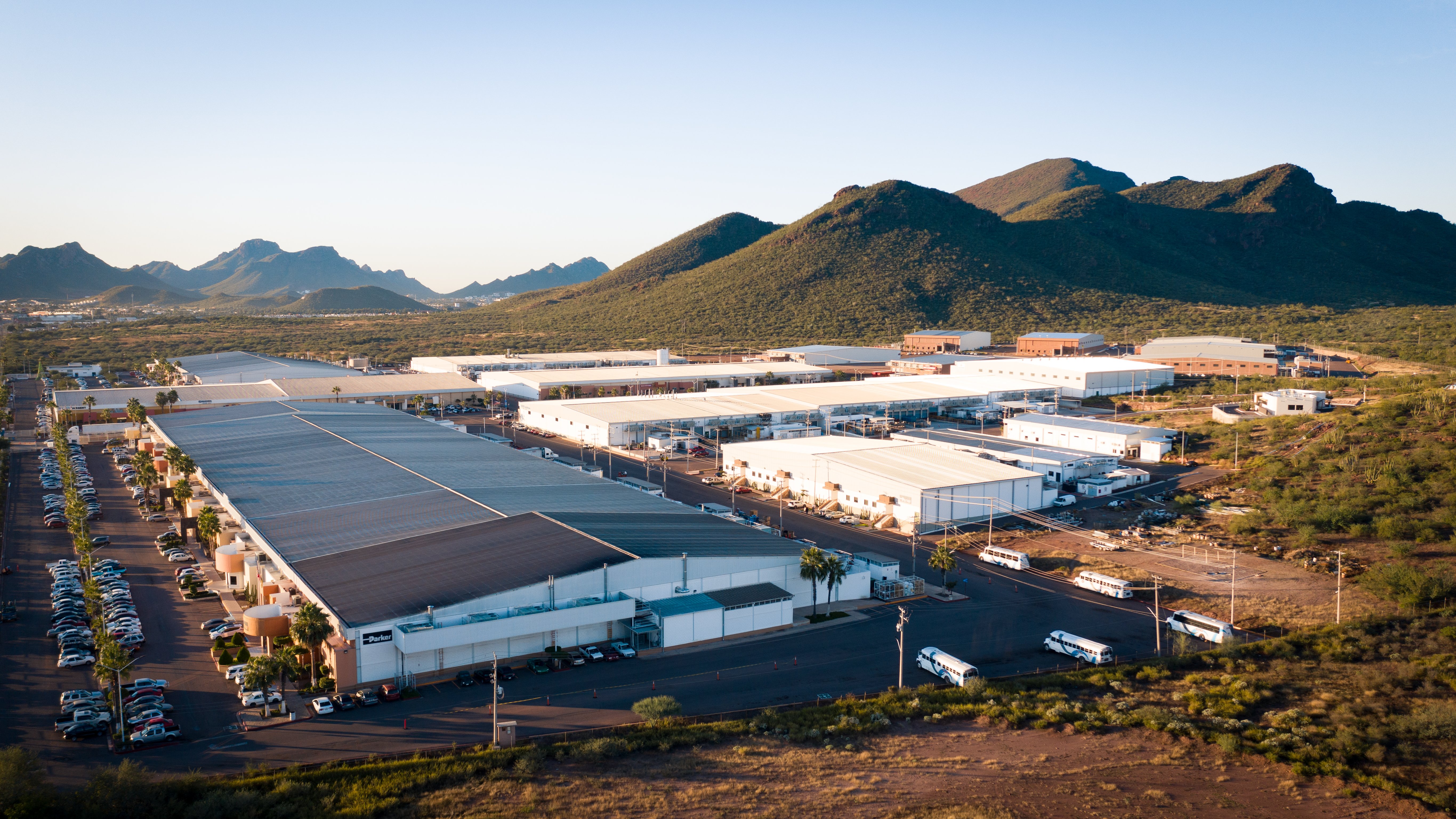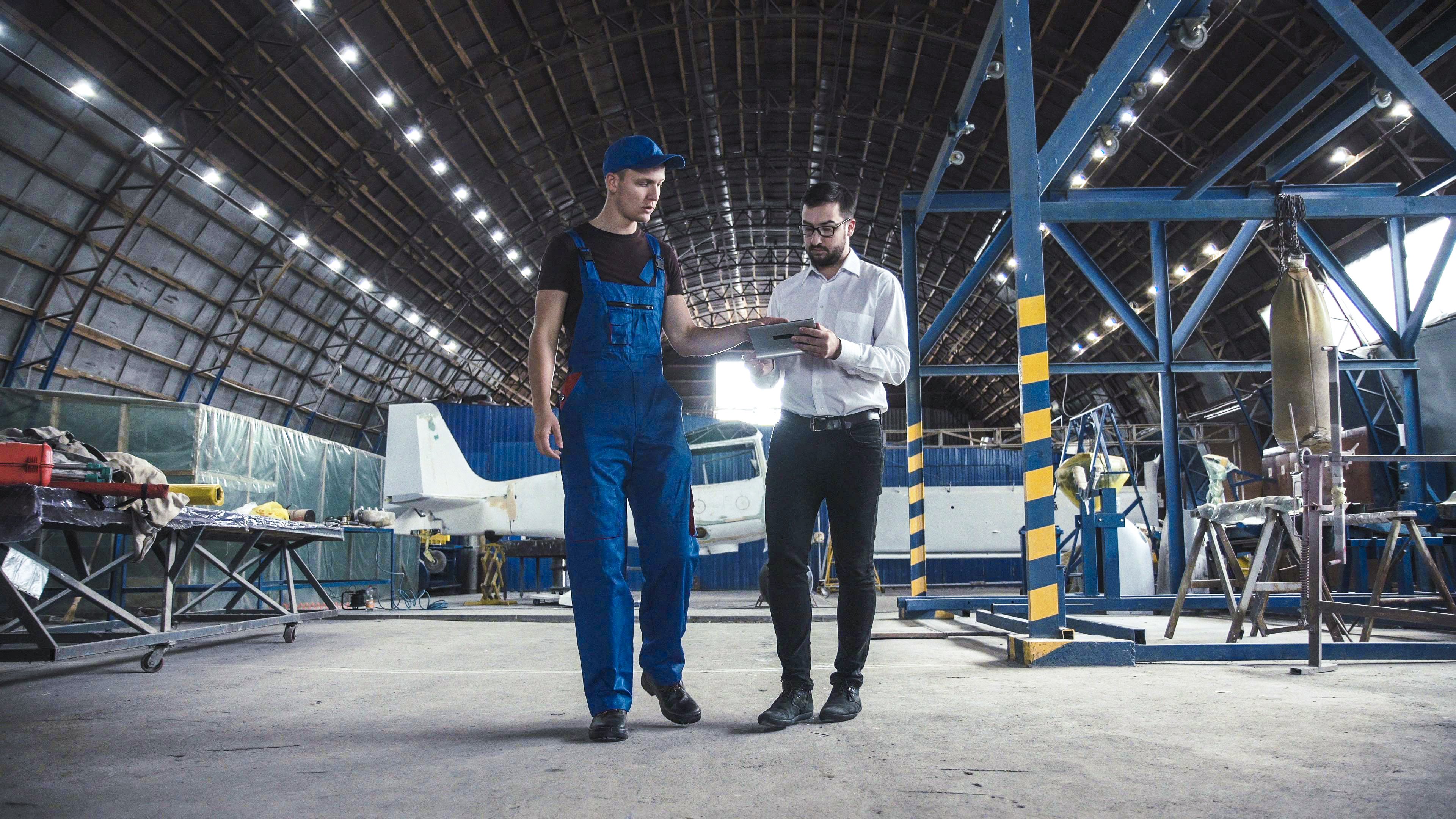Composite materials—which blend resins with reinforcing fiberglass or carbon fiber—are gaining traction in the toughest environments. They are more often found in applications that demand the strength of steel but benefit from the lightweight, corrosion-resistant, and non-conductive properties of polymers. But achieving these properties requires absolute attention to quality in the manufacturing process, as well as a balance of scientific know-how and creativity to explore new blends for new requirements. An increasing number of manufacturers, and end users around the globe, are finding this balance in Mexico’s skilled labor force.
Fast-evolving composite manufacturing technologies demand support from a knowledgeable labor force. Find just a few examples of companies leading the way in composite manufacturing in Mexico.
Shimtech finds aerospace innovation
When international aerospace group Shimtech Industries Ltd. set out to expand its Composites division, the UK-based company turned to Mexico. In 2016, the company began work on a state-of-the-art aerospace component fabrication and assembly facility in Hermosillo, Sonora. The expanded 81,000-square-foot facility includes two autoclaves to cure large composite wing and fuselage structures. The biggest autoclave, measuring 50 feet long by 12.5 feet wide, is now the largest autoclave in the Mexican supply chain. The unique equipment will help make lightweight components that will drive fuel efficiency improvements for the Boeing 787.
Shimtech CEO, Howard Kimberley noted in a company news release that the Sonora site was chosen specifically for the region’s proven experience in complex aerospace manufacturing, its program risk mitigation, and the region’s ambition to develop centers of excellence that will promote new skills and technology development throughout the region.
“The City of Hermosillo with its manufacturing-centric culture, excellent transportation links to the U.S. and productive labor pool, provides the perfect location for Shimtech Composites’ new facility,” Kimberley said.
Stabilit’s composite sheets stand out
Since 1959, Stabilit has been making its composite sheet products stand out: as roofing and walls for the building and transportation industries. These fiberglass-reinforced plastic sheets provide daylighting in applications where glass simply isn’t practical. The San Pedro Garza García-based company attributes its long-standing market leadership to the use of cutting-edge technology in its manufacturing processes. The company has two production plants and multiple commercial offices throughout Mexico, and other locations around the world.
Due to the manufacturer’s experience in the field, customers gain the benefit of a wide range of reinforcements and resins—including acrylic, polyester, polycarbonate and PVC—and each of their respective benefits for specific applications. The manufacturer’s skilled team helps to create highly custom profiles and colors to personalize each building product to achieve a specific level of light transmission and heat reduction. While these unique sheets can be used to help architects obtain coveted LEED credits for their ability to reduce energy usage, they’re also demonstrating all the corrosion-resistant power of composites as cladding in corrosive industrial environments, such as cooling towers.
Fastec meets the toughest demands
Fastec International has been protruding structural fiber reinforced polymer (FRP) components at its Jalisco headquarters since 1998, and in the process developing a reputation for providing industry leading solutions to for applications that demand strength, stability, and corrosion-resistance.
The company got its start manufacturing round rods used by the telecommunications industry. As it expanded into other industries, Fastec began to manufacture more intricate shapes and complete custom orders for applications with tough demands. After all, FRP products are proving to be a durable replacement to wood, steel and other traditional materials in corrosive or high temperature environments. Today, Fastec’s durable products are meeting demands in some of the toughest possible applications. Its proprietary pultruded handrails, platforms and grating can be found on oil rigs, in corrosive chemical facilities and in mining operations.
While Fastec manufactures exclusively in Mexico, its sales office in Houston, Texas, helps broaden the company’s distribution reach.
Zoltek invests in automotive light-weighting
Zoltek calls its Mexico-based operations “a critical facility for Zoltek’s carbon fiber operations.” It is filling a significant demand for carbon fiber in the growing Mexican automobile industry. Carbon fiber is helping automotive manufacturers create lighter weight vehicles that are not only more fuel-efficient but stronger than existing cars and trucks.
Zoltek has produced large tow carbon fiber at its plant in Jalisco since acquiring the facility in 2007 and continues to invest in both its technology and people. The company announced in 2015 that in response to the growing demand for fiber in large-scale commercial applications it would double its current global production of 13,000 tons per year by 2020. To achieve this capacity, Zoltek set out on a phased improvement plan that is ultimately expected to create 200 new jobs in the region.
SIESA finds solutions for corrosive applications
SIESA sees itself as a solution finder. The company says it is dedicated to providing composite material and engineering services specifically to solving corrosion issues in chemical, offshores gas, paper processing and other intensive environments. At its manufacturing facility in Naucalpan, production engineers blend polyester, vinylester or phenolic resins with a fiberglass reinforcement to achieve the company’s grating and pultruded structural profile solutions.
Since 1988, SIESA solutions have expanded into such applications as tank coating, fiberglass grids, shutters for cooling towers, trays for electrical wiring, polycarbonate sheets and what it calls "indestructible" PVC sheets for tough agricultural applications.
Rock West Composites expands south
When Rock West Composites set out to expand, it found the labor force it needed in Tijuana. The Utah-based company specializes in stock carbon fiber tubes, plates and complementary materials, as well as custom products and services. The new Tijuana location will be doing production work using a broad range of manufacturing processes such as resin infusion, bladder molding, roll wrapping, wet layup, and precision composite assembly. The new facility also features a clean room area for precision products.
It’s one more reason that this company sees binational operations as an opportunity to fulfill more diverse customer requirements. And it’s the reason an increasing number of manufacturers are looking to Mexico for skilled labor as well. The country has gained a strong reputation as a source of highly skilled labor that supports cost-effective manufacturing.
If you are thinking about expanding into Mexico, or looking for a low-cost alternative to your current composites manufacturing process, Tetakawi can help you achieve your objectives, contact us!
Subscribe
Sign up and stay informed with tips, updates, and best practices for manufacturing in Mexico.





